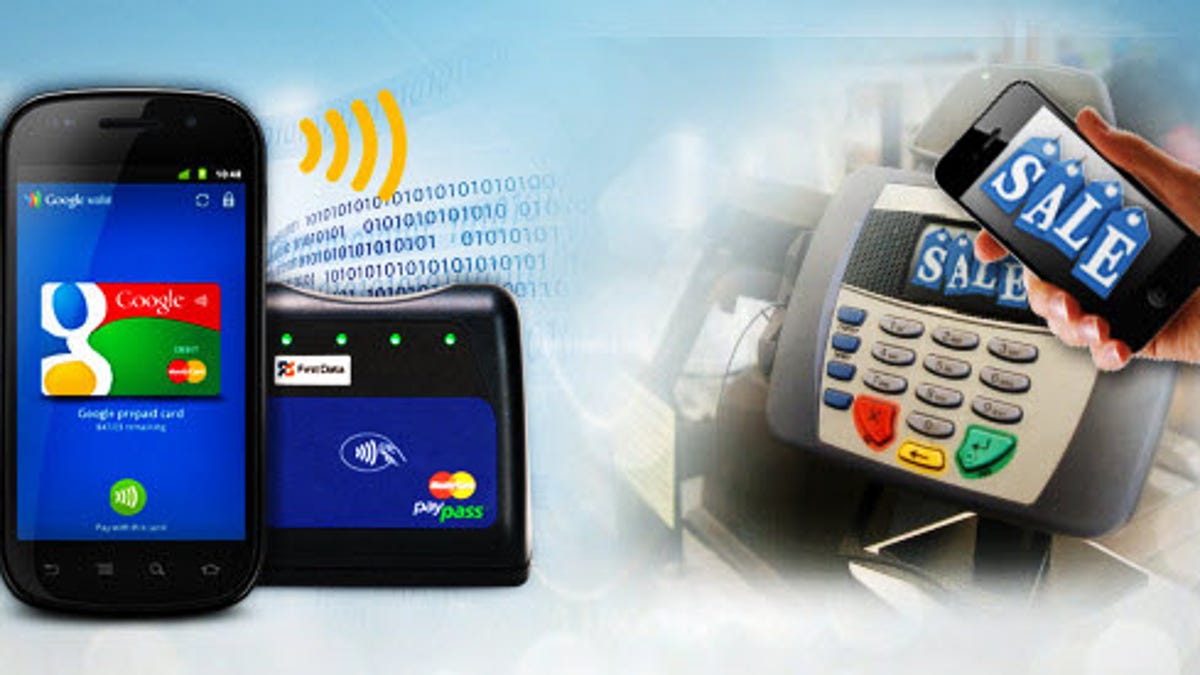AT&T, Verizon, T-Mobile to pump cash into Isis venture
The carriers are expected to infuse $100 million into their mobile payment initiative as they compete with Google, according to Bloomberg.

AT&T, Verizon Wireless, and T- Mobile USA plan to invest an additional $100 million into their mobile payment joint venture, Isis, to help get the project off the ground more quickly, Bloomberg reported Monday.
According to Bloomberg's unnamed sources familiar with the joint venture, the investment is contingent on whether Isis, which was developed to turn cell phones into payment devices, could sign up additional banks and merchants.
A spokesman for Isis declined to comment on the rumors.
The joint venture, formed in November, has been somewhat slow to get off the ground. But the additional funding could help it speed up the launch of the new application, Bloomberg reported. Competition in the mobile payment and digital wallet market will soon heat up as Google prepares to launch its own mobile payment application.
Google Wallet was unveiled in May and will use NFC or near-field communication technology to turn mobile phones into digital wallets. The technology, which is included on chips that fit into smartphones, allows subscribers to swipe or tap their phones at payment terminals in stores to pay for things. Isis announced earlier this year that it will use the same NFC technology for its payment network.
The idea behind Isis, Google Wallets, and other mobile payment offerings is that consumers will be able to load several credit cards into their digital wallets on their mobile phones. They'll also be able to use coupons and merchant loyalty cards via their phones.
Isis isn't expected to launch its digital wallet commercially until 2012. But Google will likely be releasing Google Wallet in the next few weeks on the Google Nexus S device. The device is available for Sprint Nextel's network.
Credit card company Visa is also planning to launch a digital wallet this fall that could compete with Google Wallet as well as the Isis digital wallet. Visa is also working with Isis. In July, Visa along with MasterCard, Discover, and American Express, signed a deal stating they'd be part of the 2012 roll-out of Isis.
Long history
The idea of using a cell phone as a sort of credit card to pay for things has been around for years. Phone manufacturer Nokia and wireless operator Cingular (which is now AT&T Mobility) were testing a similar service in New York City in 2006. But the service never launched commercially in any widespread way.
In a recent interview with CNET, Bill Gajda, global head for Visa Mobile, said that the technology to make mobile payments a reality has been available for some time. But it's taken a while for all the players to agree on a business model.
"This isn't a technology issue," Gajda said. "It's a business model issue. How will it work in a commercial setting."
Gajda said the holdup has been more about who in the food chain gets paid. In its initial plans, the carriers involved in Isis were looking to put charges from phone purchases directly on a consumers' bill, which would have made them act more like credit card companies and banks. It also could have potentially cut out those players from their core business.
But now Isis is partnering with credit card companies and is signing up banks. Still, Gajda said that wireless operators are a critical piece of the puzzle, too. They decide what features are enabled on devices that operate on their networks.
This means that if AT&T and Verizon Wireless want to promote their Isis digital wallet over another digital wallet, such as Google Wallet, they could simply disable the app on the phones that run on their networks. Or they may decide not to subsidize phones that push Google Wallet.
"(Wireless carriers) are responsible for distribution of 90 percent of the phones in the U.S. and they subsidize the handsets," he said. "So I think they have a lot to say in terms of what features get turned on or not."

